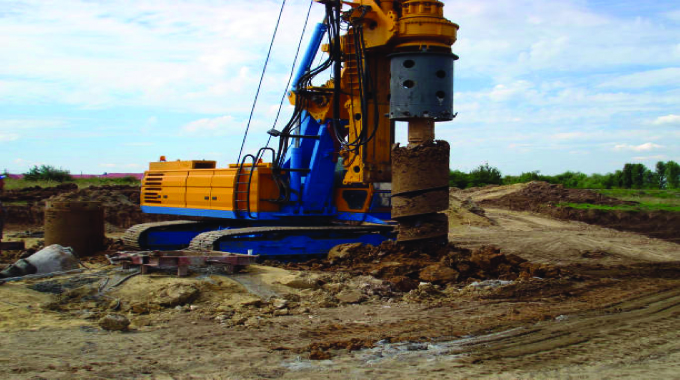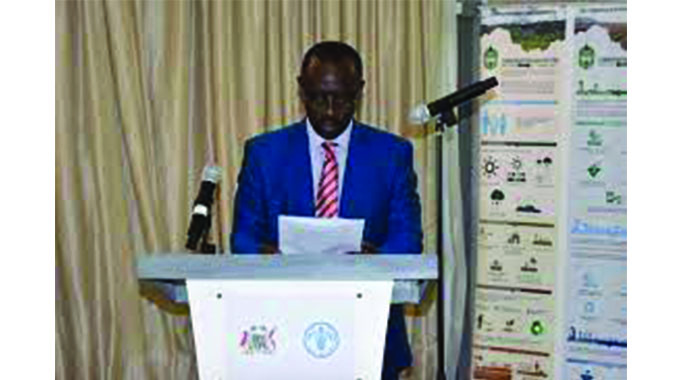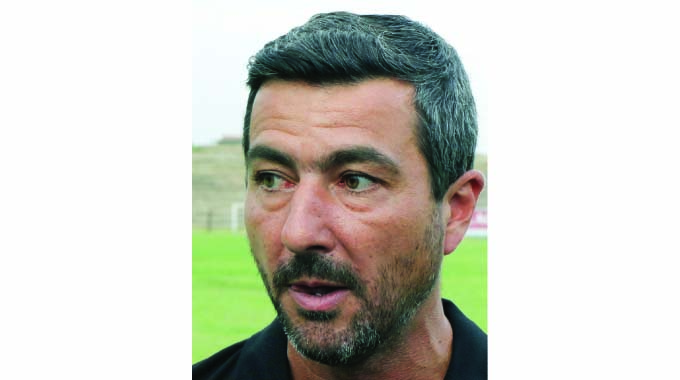Matabeleland South to benefit from borehole programme

Yoliswa Dube-Moyo, Matabeleland South Bureau Chief
Communities in Matabeleland South province are set to benefit from the drilling and rehabilitation of more than 300 boreholes for farming and domestic uses.
The programme, which is being implemented by the Food and Agriculture Organisation in partnership with Unicef, is under the Enhanced Resilience for Vulnerable Households in Zimbabwe (ERVHIZ) initiative.
Through ERVHIZ, rural households’ resilience to food crises and climate change is enhanced as the programme is expected to contribute to the well-being of households in vulnerable situations in the face of economic and climate induced shocks and stresses.
The programme will also see nine solar- powered piped water systems being developed and 900 water points being tested for water quality.
Water point committees and village pump mechanics will also be trained on operation and maintenance of the facilities.
In a report, FAO noted that a combination of underlying socio-economic constraints, as well as the impact of external factors such as climate change and the Covid-19 pandemic are stretching the livelihood resilience of Zimbabwean communities. “FAO and Unicef are implementing an integrated project focusing on adopting principles of agro-ecology, access to local markets and community water, sanitation and hygiene (WASH) and nutrition interventions. This is envisaged to alleviate a ‘long term’ crisis of chronic malnutrition (stunting), currently at a national average of 26,8 percent, the short-term problem of wasting currently at 3,6 percent (2019 Zimvac), inadequate or unimproved basic WASH services for rural households as well as building households’ resilience to climate change and economic shocks,” read the report.
The report further highlighted that the primary concern of farmers is to produce enough food to maximise their family income.
“Assuming other conditions are met, the productivity of the farmer’s enterprise will be determined by how well irrigation water is supplied, discharged and groundwater levels are maintained. To obtain maximum yields, farmers require flexibility in water supply in terms of frequency, rate and duration,” read the report.
Deputy FAO representative in Zimbabwe, Mr Louis Muhigirwa said his organisation is committed to partnering with the Government and other UN agencies such as Unicef to build community resilience around multi-purpose water systems for use in agriculture production as well as human consumption.
“In line with Sustainable Development Goals 2,6,13 and 17 through funding from the European Union, Somnene Irrigation Scheme is one of the schemes that will benefit and demonstrate this multi-sector collaboration towards achieving climate change adaptation in rural communities of Matabeleland South Province,” said Mr Muhigirwa.

Matabeleland South acting Provincial Agricultural Director (rural development services) Mr Mkhunjulelwa Ndlovu said irrigation schemes are critical for food security.
“In terms of irrigation schemes, we have two in Bulilima, Gwanda has nine, Umzingwane has three and we have four in Matobo. Most of these are above 60 percent in terms of utilisation. This is critical for food security,” said Mr Ndlovu.
He said there was a need to revive the remaining irrigation schemes that are not functioning.
“Irrigation schemes are fast developing in the province following intervention from Government and various partners. At the pace that we are moving in terms of establishment of new irrigation schemes and rehabilitation of old schemes, the province will soon become a major food producer and supplier even to neighbouring provinces,” said Mr Ndlovu. — @Yolisswa







Comments